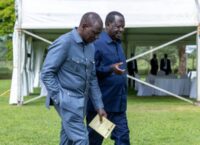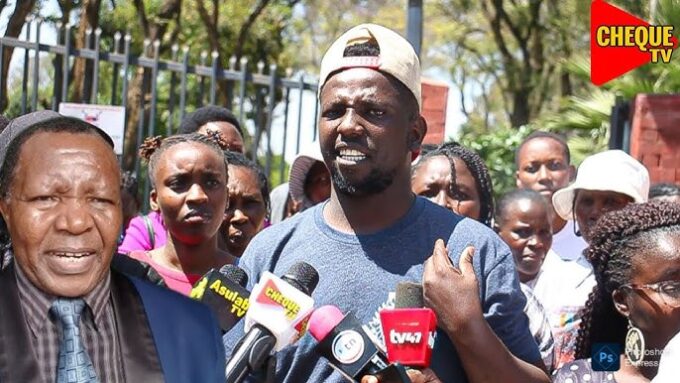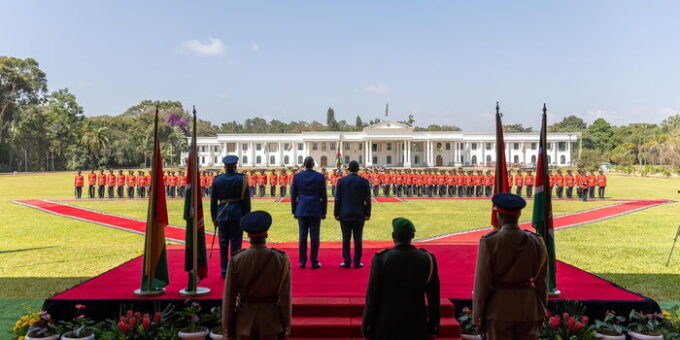Nigel Clark, the IMF deputy Managing Director /photo courtesy/
The International Monetary Fund (IMF) deputy Director General Nigel Clark is scheduled to visit Kenya in December, a meeting aimed at planning ways of governing expanding debt burden.
IMF Director of the Communications Department Julie Kozack said Clarke’s visit will be based on the ongoing talks regarding Kenya’s wish to borrow more in efforts to bridge revenue deficit in the face of a constrained revenue base.
“During his visit, DMD Clarke will meet with the authorities and other key stakeholders, and we’ll provide more updates on this trip as they become available,” Kozack stated.
She said that Clarke is expected to travel to Nairobi on December 9 for a two-day meeting as part of ongoing engagements with Kenya.
Kozack confirmed that Kenya is in touch with the UEA over a loan facility of about $1.5 billion but added that they are not going to comment on the specific discussions that the authorities are having with their bilateral creditors.
She, however, revealed that currently, Kenya has a high risk of debt distress and any borrowing should be carefully thought out.
To safeguard against unplanned borrowing that might drive the country into debt distress, IMF has conditioned Kenya’s borrowing on several events, including increasing tax revenues, reducing subsidies and cutting government expenditure.
The head of state has in recent months effected some of the measures, including introducing strict measures in ministries,consolidating non performing corporations and introducing new tax measures to boost domestic revenue collection.
However, the President experienced a hardship after widespread street protests forced him to withdraw the unpopular Finance Bill, 2024, which sought to introduce new taxes projected to raise Sh340 billion to finance the government’s Sh3.9 trillion budget.
Total 2024-25 expenditure is projected at Sh 3,920.7 billion, which comprise Sh2,781.7 billion recurrent and Sh 687.9 billion development.
To finance the above budget, total revenue collection, including grants, is Sh3.4 trillion, with the deficit of Sh 597 billion expected to be financed by domestic and external borrowing.
The global bank works to achieve sustainable growth and prosperity for all of its 191 member countries by supporting economic policies that promote financial stability and monetary cooperation, which are essential to increase productivity, job creation, and economic well-being.
Kenya is struggling with a Sh10.6 trillion public debt as of July, 2024. The country’s total debt service obligation for the 2024-25 financial year is Sh1.85 trillion. Kenya is currently operating with a very complicated balancing act between meeting and at the same time spending on needs and boosting domestic revenues from an increasingly hopeless public.











